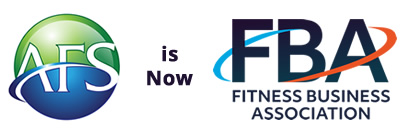
By Mike Jesowshek, Special AFS Contributor
This time of year for any fitness business owner means many things, but specifically - new year's resolutionists and tax season. As you embark on growing your business there are still some tax saving strategies you can consider.
In this post, I'll be outlining what you need to gather for contractor and vendor payments as well as tips on how to make this tax season easy!
Tax Planning Strategies to Implement Before Year-End
1. Expense Acceleration (Cash Basis Filers)
- Increasing your business expenses by purchasing goods or prepaying normal operating costs can be a huge tax help. These can be simple expenses like paper or office supplies to more complex items like cars, trucks and buildings. While it may seem obvious, most business owners are so busy at the end of the year they forget to think about what items they could buy now. Keep in mind, any increase in spending must be made before December 31 or the end of your fiscal year. Some common expenses business owners accelerate are:
- Automobile payments
- Office supplies
- Payments to vendors
- Software renewals
- Commissions
- Benefit Payments
- Advertising costs
- NOTE: Increasing expenses must be used cautiously. Never spend money JUST to get a tax deduction, you should only spend money when doing so will later make you money, or buy an item you need to make money. Also keep in mind not everything can be expensed all at once. Check with a professional to find out what can be deducted if you are not sure.
2. Income Deferment (Cash Basis Filers)
- You can reduce your income by asking customers to wait on paying you until next year. The income then becomes taxable in the next year rather than this year. You may also want to consider not billing your customer until after the first of the year. That way you can ensure you have deferred the income into the next tax year. This strategy is completely controllable by the business owner but the key is knowing how much to defer. Here are some tips for Deferring Income:
- Always keep track of who owes you money
- Don't over-extend yourself, saving on taxes is not worth going broke
- Discuss with customers that might have questions
- Remember that the income will show next year
- Generally only do this with "Good Payers", not customers who pay slow or late
- NOTE: Always keep in mind that Income Deferment is not like spending money. When you spend money the money is gone, but with income deferment, the money is still coming and you can keep it. This is a timing change only. Many of your customers will like this too, they may not need the expenses on their return as much and most people like keeping their money as long as possible. Just make sure they pay on Jan 2nd or soon after.
3. Charity
Charitable donations can be cash, real estate, motor vehicles, appreciated securities, clothing and other donated items such as furniture, electronics, books, shoes, etc. Donations which are made to qualifying organizations can help you limit your tax liability. (See tax code: 26 U.S. Code § 170 - Charitable, etc., contributions and gifts.)
Deductions can be taken in the year they are donated. Deductions are limited to 50% of your adjusted gross income for cash gifts to public entities and 30% to private entities. Donations to political parties, private individuals, fees paid for professional associations, labor union donations, payments to for-profit schools or hospitals, and foreign governments ARE NOT DEDUCTIBLE. Charity is deducted on Schedule A and the deduction will depend on how much you report on the Schedule A in other categories like mortgage interest, property taxes, and medical.
Information You Need to Gather from Contractors
In general, if you have contractors/vendors that you paid $600 or more to in all of 2017 you will have to send them a 1099. In order to generate a 1099 you will need a copy of a W9 filled out. If you do not have a W9 on file for contractors or vendors it would be a good idea to get them ready now, before the year ends. Below is a link for a W9 that you can request vendors to fill out: www.irs.gov/pub/irs-pdf/fw9.pdf
In general, if you have contractors/vendors that you paid $600 or more to in all of 2017 you will have to send them a 1099.
How to Make Tax Season Easy
Tax season is often a stressful time of year for business owners and things are usually completed at the last minute. It doesn’t have to be that way. Make 2018 the year that taxes are easy and you can focus on your business instead of tax law. Here are some tips to help ease that process:
1. Work With a Professional – Preferably find a modern cloud based accountant that can help you with your business and personal taxes. They will have resources and processes in place that allow you to get information over to them and complete tax filing all without having to leave your studio or office!
2. Gather All Tax Documents – Keep good records of necessary tax items as well as forms that come in the mail. These can include:
- Expense Receipts – Take a picture of them and file them in a cloud based folder in the event that they are needed down the road.
- Bank and credit card statements – Put them on file.
- Payroll Documents
- Last Years Tax Return
- Various Forms: W2, 1099, Student Loan Interest, Mortgage Interest, Real Estate Taxes
- Medical Expenses, Charitable Contributions
- Etc.
3. Have a Solid Bookkeeping System – Make sure your books are in good order. This can help for a smooth tax season as well as bullet proof yourself from an IRS audit. Benefits of having a cloud accountant handle bookkeeping are:
- You have a professional doing your bookkeeping that is 100% focused on making sure data is accurate and bullet proof from an IRS audit.
- You’ll save time and stress since you no longer have to spend your personal time on it.
- You have full access to the accounting system anywhere, anytime, so you can pull reports and use this information to grow!
Conclusion
In conclusion, tax season can often be stressful for small business owners but it doesn’t have to be. Using the information discussed, you can take steps now that will help you lower your tax liability and prepare you for the upcoming season so you can breeze through your taxes and continue focusing on your business. If you are interested in learning more about the topic above or any other bookkeeping or tax related items, send me a message, I would be more than happy to chat!
Mike Jesowshek, CPA is the founder of the accounting firm JETRO and Associates. He has a strong passion for both fitness professionals and technology. He helps provide a digital accounting, bookkeeping, and tax solution for studio and gym owners who are looking to take it to the next level by utilizing modern, cutting edge technology.


Join the Conversation!